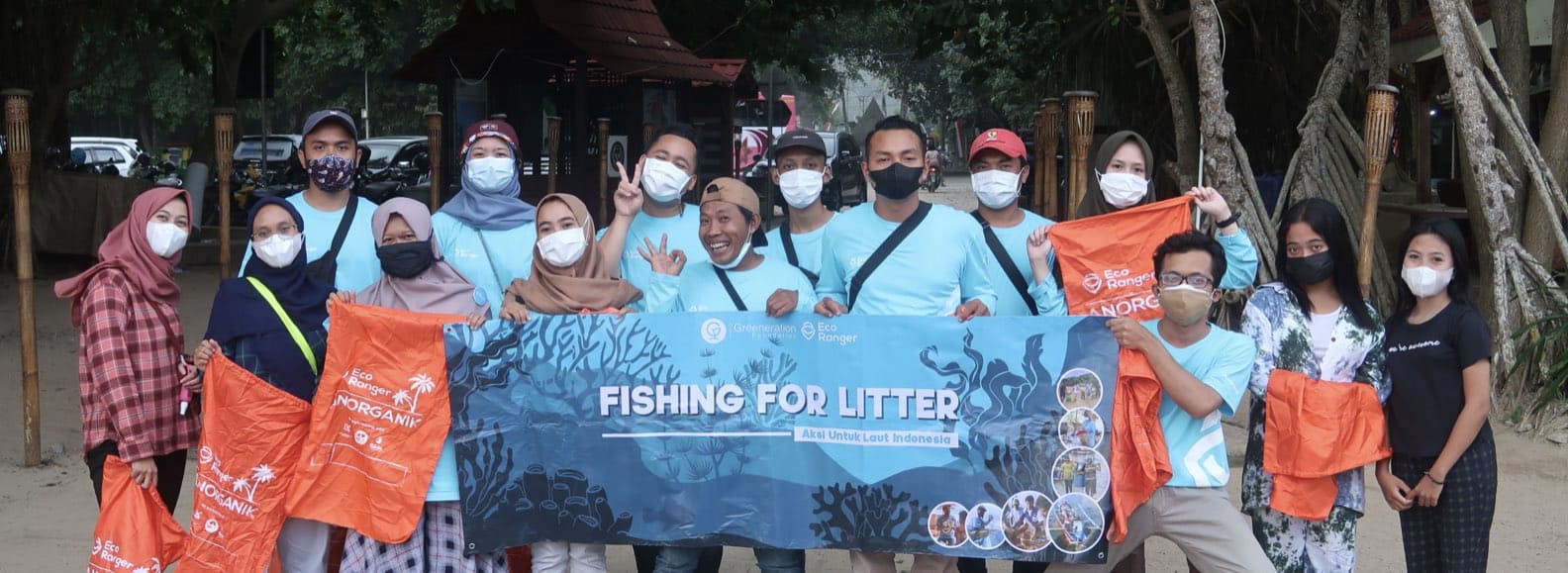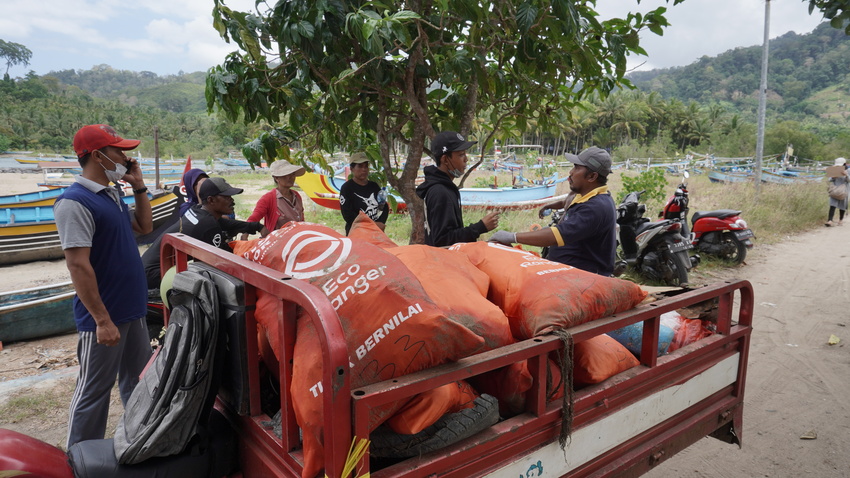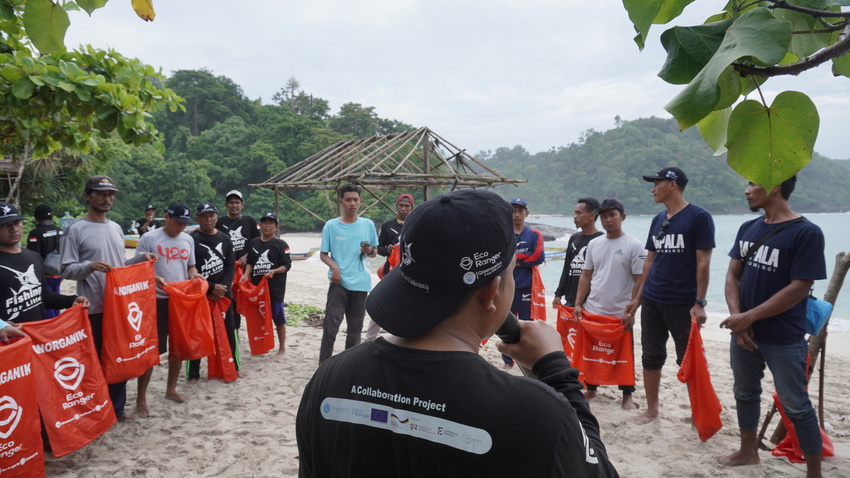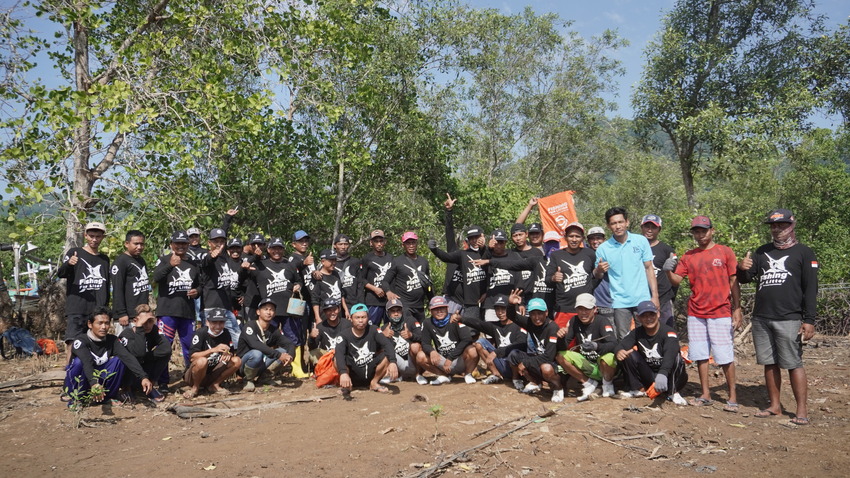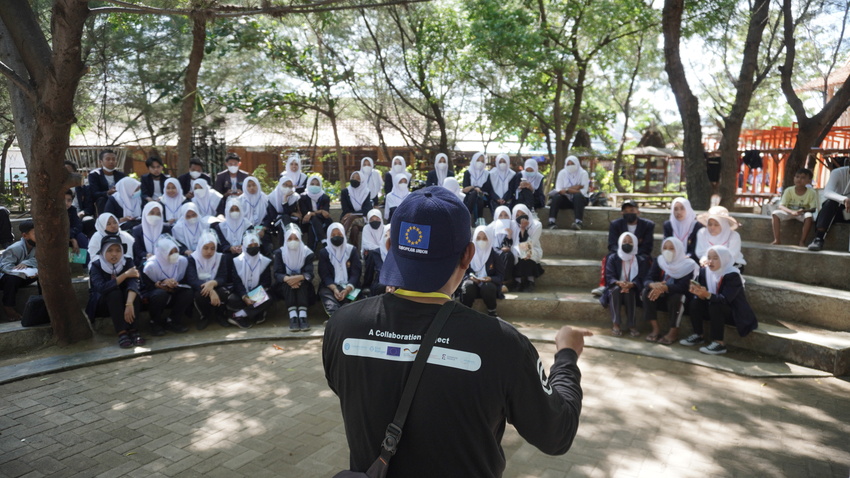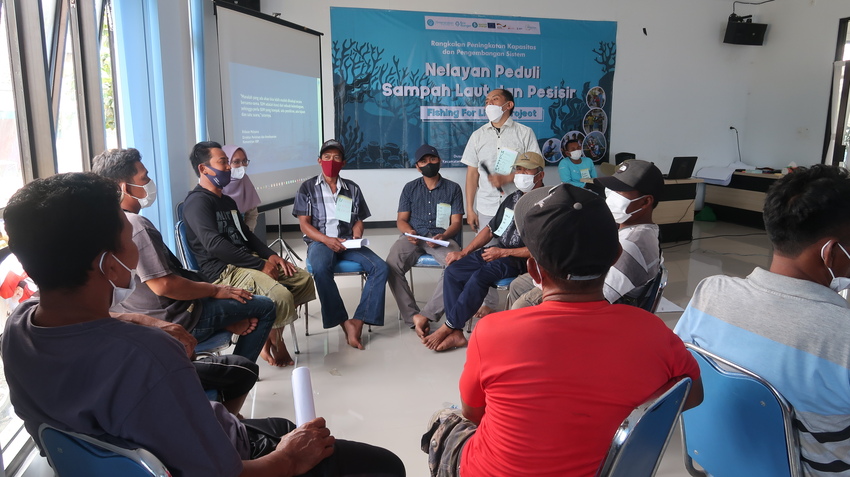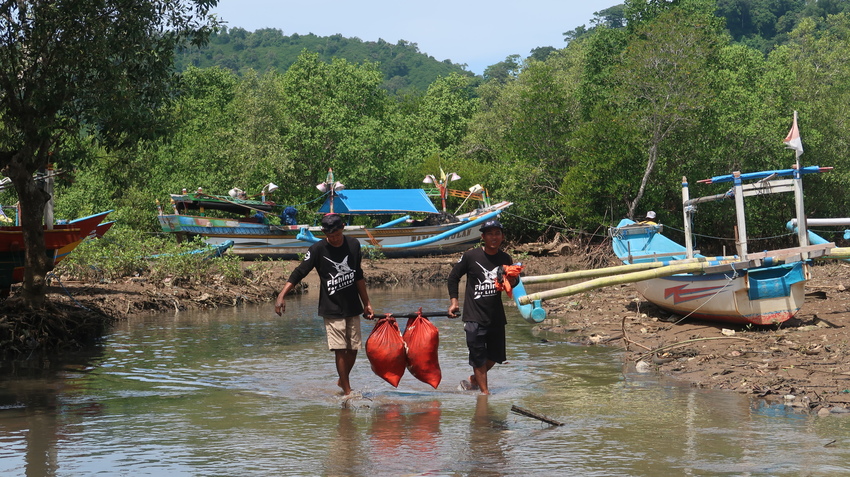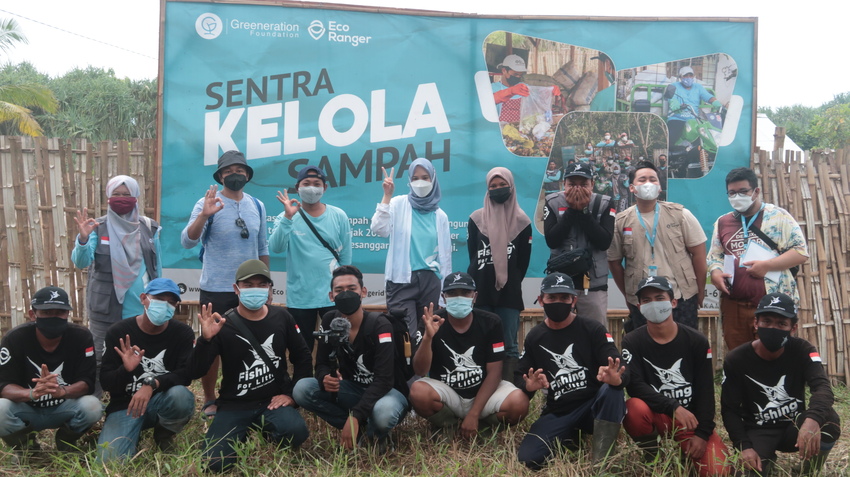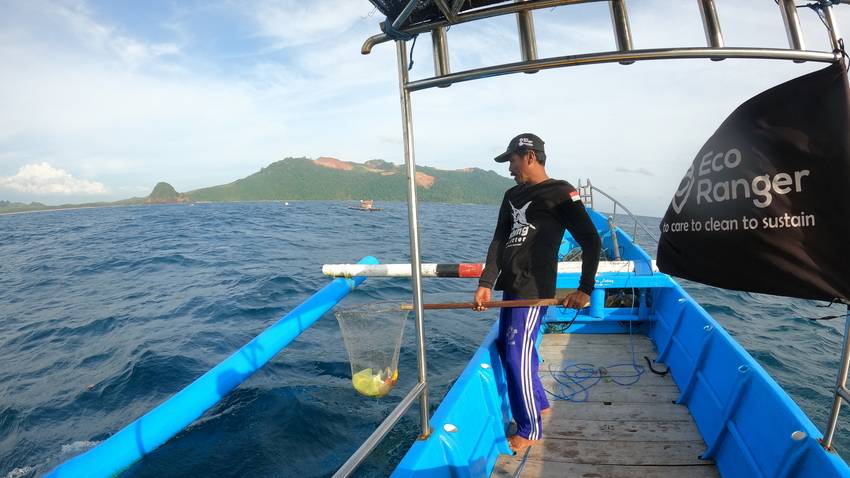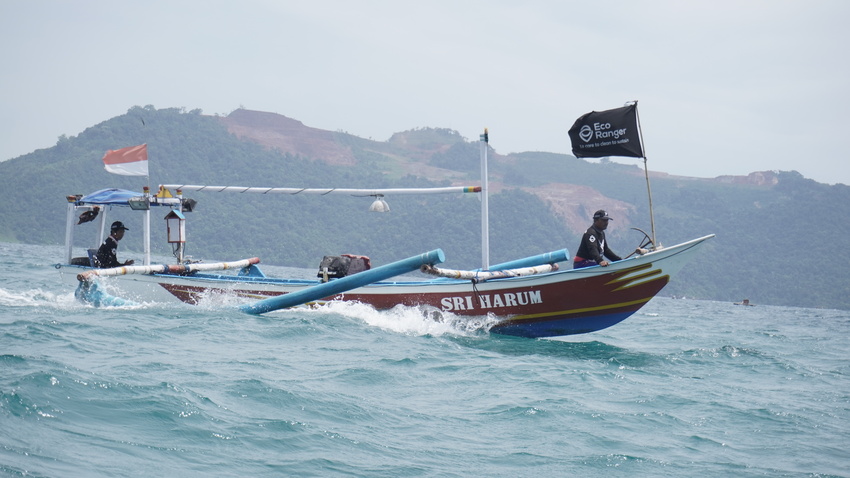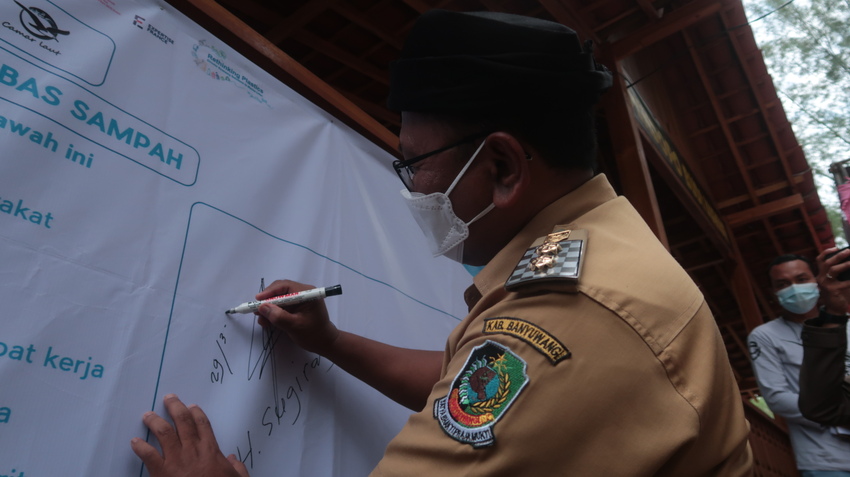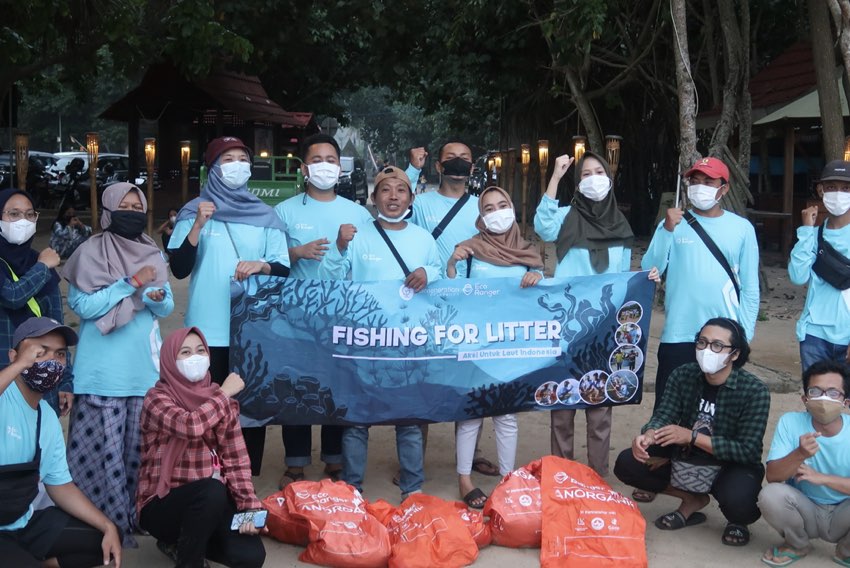Ecorangers Tackling Marine Litter
Ahmed Muzaqi used to step over endless piles of waste on his way to work. Old fishing nets, plastic bottles, metal poles, old newspapers – tonnes of litter had been washed on shore. And yet this was only a fraction of what could be found floating out at sea.
Introduction of the pilot project
Muzaqi walked along a beach, although you wouldn’t know it: what should have been an idyllic backdrop – and a magnet for tourists – looked like a waste disposal site. It was unhygienic and unhealthy, but no one had yet managed to make positive changes to the beaches in the area. It seemed like a Herculean task, but Muzaqi had a plan: “Through the EcoRanger programme, we have been encouraging local fishermen and stakeholders to manage waste responsibly, primarily plastic waste from fisheries activities,” he explains. Muzaqi and his colleagues work as EcoRangers for the Greeneration Foundation. They reached out to local fishermen in the coastal area around Pancer Hamlet. The fishermen earn their livelihoods from catching fish at sea and so their lives depend on a healthy marine environment. The EcoRangers showed them how to use responsible and sustainable practices to reduce marine litter and helped them to organise themselves into groups to start “fishing for litter”. Every day, the fishermen now collect waste, and although the group has started small, they are key change agents who can inspire others.
WHAT HAVE WE ACHIEVED IN 11 MONTHS?
1. EcoRangers to the rescue
In our pilot project, we have worked with 60 fishermen. Together, we discussed the impact of waste on marine and coastal areas, as well as how to manage it. The fishermen learned more about responsible fishing and how they can contribute to relieving the immense pressure that plastic waste puts on the beaches and oceans. Equipped with their new knowledge, the fishermen started fishing for litter and collected 13,5 tonnes of marine litter in only six months, together with the waste from organised beach clean-ups.
2. Creating a viable business
To make sure that the “fishing for litter” activities wouldn’t stop after the end of the project, we wanted to provide a stable basis for business into the future. We helped the fishermen to form five Joint Business Groups, each one of them with its own structure, a chairperson, secretary and treasurer. Being organised in officially recognised business groups enables them to conduct group activities with financial support from the local government and join training programmes on local economic growth. During the project, the fishermen business groups received money for valuable waste, such as recyclable plastics, and incentives for collected waste without economic value. These financial rewards from the pilot project could be used as the groups deemed appropriate. Some groups decided to finance activities that would generate more income, such as cultivating catfish, while other groups paid out cash to their members. The project team assisted either way: fishermen could seek support to manage their groups finances through administration, planning and reporting.
3. Passing on the message to thousands more
The project team and fishermen were proud of their activities and shared them widely. They passed on their story and knowledge about marine and coastal waste management to local fishermen, the Youth Scientific Community of Darushholah Singojuruh State High School, at fishing camps and at the EcoRanger Talkshow Series. Many newspapers reported on the activities, while Instagram and Facebook accounts reached tens of thousands of people. Public awareness increased considerably, and other fishermen started thinking twice about how they handled the waste generated from fishing. What started with just 60 local fishermen began to change the behaviour of many. Today, many no longer throw away their single-use plastics and fishing gear directly into the ocean, and they are more aware of responsible waste management practices.
4. Caring, cleaning and sustaining – with the right support
With the support of local government, the pilot project has successfully set up the “fishing for litter” scheme for fishers in the Pancer Hamlet coastal area. Involving the government provides a good basis for the business groups created to remain active and be sustainable in the future. Recommendations for tackling marine litter have been submitted to the government and it is hoped they will be considered in the design of policies for sustainable fisheries and clean fishing village programmes. And the EcoRangers are planning for the future: the SEKOLA waste management centre has been equipped with a motorcart and a dumpster, so the facility can now maximize its waste sorting and recycling processes in Pancer Village after the project comes to an end. The Ecorangers are working on new projects, and community education will be stepped up – contributing to a sustainable and cleaner lifestyle.
WHAT ARE OUR RECOMMENDATIONS FOR SIMILAR PROJECTS?
- Use incentive mechanisms to engage fishermen. Transparent incentives provide additional income and encourage healthy competition among groups. Incentives could include, for example, a reward for the business group who collected the most waste in a certain period of time. Appreciation can be shown with certificates or trophies for outstanding work. Posting group activities on social media can increase the motivation and confidence of fishermen.
- Provide the groups with financial guidance. In this pilot project, all monthly incentives were given to the groups in cash. This can be adapted: it might be appropriate to save around 15%-20% of monthly incentives for groups to buy some assets for their activities after project completion. This would drive their economic growth.
- Involve families in clean-up activities. Together, the families achieve higher waste collection targets and ensure that everyone has the same knowledge (although this was not included in the “fishing for litter” programme). Their enthusiasm enriches the groups.
- Build a personal relationship with the fishing community and involve community leaders. Direct, offline communication reduces the potential for miscommunication.
- Involve fishermen in procedures and activities such as educational events, for example include them in the event committee. This can provide them with the knowledge they need to manage events in future.
More videos?
Impressions from the Fishing for Litter Kick-Off in September 2021
Watch here the Talkshow on Fishing for Litter in Indonesia on 30 March 2022.
Implemented by: Greeneration Foundation / https://greeneration.org/
Facebook: Greeneration Foundation | Facebook
Twitter: Greeneration.org (@greenerationid) / Twitter
Instagram: Greeneration Foundation (@greenerationid) • Instagram photos and videos
YouTube: Greeneration Foundation - YouTube
LinkedIn: Greeneration Foundation | LinkedIn

